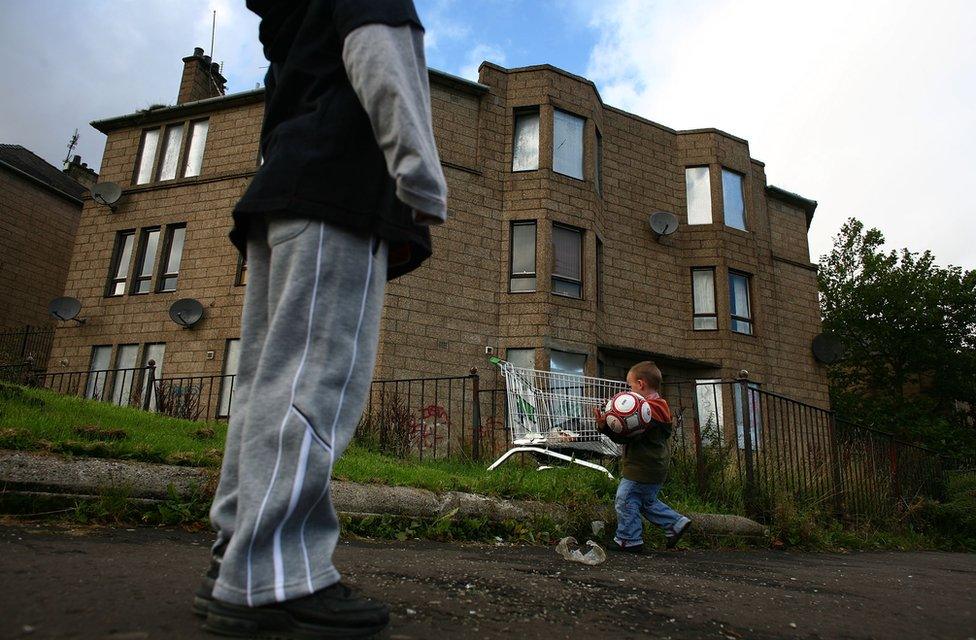Brexit could mean benefit cuts for poor families, say economists
- Published

Low income families could receive hundreds of pounds less in benefit payments if the UK leaves the EU, according to an economic think tank.
In its central forecast, the National Institute of Economic and Social Research (NIESR) said some households could lose up to £2,771 a year.
Falling national income might result in cuts to the welfare budget by 2020, the NIESR study said.
The Vote Leave campaign said the report was based on "dodgy" assumptions.
Using existing forecasts, NIESR assumed that national income will fall by up to 6% by 2020 if the UK leaves the EU, compared to what it otherwise would have been.
It also assumed that the government would stick to its promise to balance the books by 2019/20.
In that case, it said, the government would need to save £44bn by the end of the decade, a large proportion of which could come from the welfare budget.
However, the government could choose instead to cut other areas of spending or raise taxes.
The welfare budget represents about 28% of all current government spending, according to the Office for Budget Responsibility (OBR).
"Based on these assumptions, our results show that a disproportionately large share of the costs of Brexit is likely to fall on low income households," said Angus Armstrong, one of the report authors and a former Treasury official.
The NIESR report used existing forecasts from seven published sources, including the Treasury. But none of these use a "dynamic" model.
In other words they take no account of any policy changes that might be announced in response to a UK exit from the EU, such as a cut in base rates by the Bank of England.
'Dodgy assumptions'
If 25% of the necessary savings were to come from welfare spending, the biggest cut in benefit payments and tax credits would be £1386 a year, the NIESR study says.
That would be for a lone parent of working age who has two children.
The minimum would be £465, for a couple, both working, with no children.
If 50% of the savings were to come from the welfare budget, the biggest cut would be £2,771, and the smallest would be £930.
"The effect on low income families is likely to be large," said Katerina Lisenkova, another of the report's authors.
However the Vote Leave campaign said the findings were not credible.
"This is yet another report from a former supporter of the euro masquerading as new research that is simply recycling and repackaging previous reports," said Matthew Elliott, chief executive of Vote Leave.
"That means the same dodgy assumptions of establishment economists and the Treasury underpin the findings - it is the same people who predicted the world would end if we did not join the euro."
The NIESR study suggested that net migration from the EU into the UK would fall by two-thirds in the event of a UK exit.
It also found that the population profile of the UK would become older.